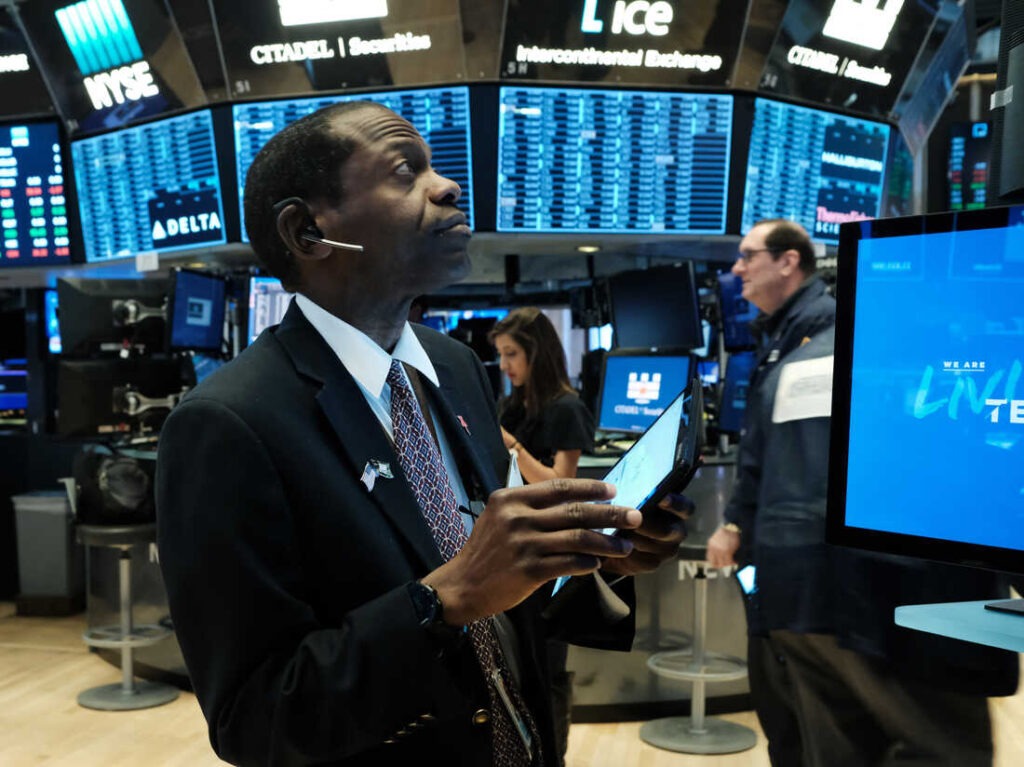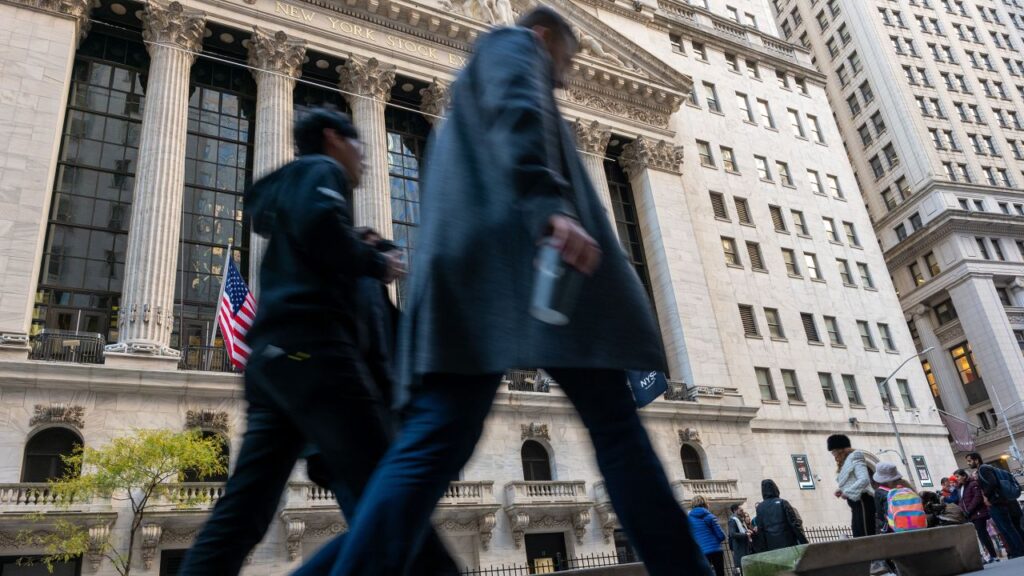US equities closed lower on Tuesday as investors revised expectations for Fed policy easing in June due to robust economic data. The S&P 500 fell 0.7%, the Dow declined 396 points, and the Nasdaq slid 0.9%. February's job openings surpassed forecasts, while factory orders exceeded expectations, signalling economic growth. Healthcare shares dropped following increased Medicare Advantage payments, with UnitedHealth, Elevance Health, and CVS Health declining. Consumer discretionary and tech sectors also fell, with Tesla missing delivery estimates, dropping 4.9%. Meanwhile, the STOXX 50 closed lower by 0.7% at 5,046 points amid concerns over potential Fed interest rate cuts, fuelled by stronger-than-expected US economic data.
Summary for 03.04.2024
- Asian equities declined as a powerful earthquake in Taiwan dampened risk sentiment, compounded by uncertainty surrounding US interest rate changes. Taiwan's market fell 0.8%, with major chipmaker TSMC halting production. Profit-taking ensued across Asia amid Fed rate cut ambiguity. The Nikkei, ASX 200, and KOSPI retreated, while China's indices dipped despite positive economic data. Hong Kong's Hang Seng slid due to losses in EV shares following Tesla's disappointing deliveries.
- European shares are poised for a stable start as investors analyse central bank outlooks, while US equity futures declined due to rising Treasury yields and concerns over prolonged Fed interest rate hikes amid escalating crude oil prices.
- Oil prices edged higher in Asian trading, maintaining five-month highs on the back of shrinking US inventories and potential supply disruptions in Russia. The upcoming OPEC+ meeting is expected to keep production steady. Concerns over Middle East conflict, following Iran's vow of retaliation against Israel, further fuelled supply worries, pushing prices upward.
- Taiwan was hit by its strongest earthquake in 25 years, causing significant damage to buildings and injuring over 50 people. The 7.4 magnitude quake struck the eastern side of the island, leading to disruptions in chip production. Taiwan Semiconductor Manufacturing, the world's leading chipmaker, paused operations and evacuated employees as a precaution.
- Two voting Federal Reserve officials Dally and Mester anticipate three rate cuts in 2024 but emphasize no urgency in implementing them. Market optimism for rate reductions diminishes as bond traders increase bearish positions, leading to a selloff in Treasury securities. Strong US growth prompts a reassessment of Federal Reserve interest-rate policy expectations.
- In March, the Caixin China General Service PMI rose to 52.7, marking the 15th consecutive month of service activity growth, in line with expectations. New business accelerated, driven by improved demand and export orders reaching a nine-month high. Despite a slight decrease in employment, optimism increased due to new product launches and expansion plans.
- In February, new orders for US manufactured goods rebounded by 1.4% to $576.8 billion, following January's 3.8% drop, indicating sustained resilience in the economy. Concurrently, job openings in the United States surpassed expectations, reaching 8.756 million, with notable gains observed in finance, insurance, and state/local government sectors, while declines were seen in information and federal government industries.
- Germany's consumer price inflation dropped to 2.2% in March, down from 2.5% in the previous month, aligning with forecasts. This marks the lowest rate since May 2021, nearing the European Central Bank's 2.0% target. Goods inflation slowed sharply to 1.0%, while services inflation increased to 3.7%. Core inflation eased to 3.3%.
- Tesla disappointed analysts with its Q1 delivery numbers, reporting 386,810 vehicle deliveries compared to the expected 449,080. Model 3 and Model Y deliveries totalled 369,783, down 10% year-over-year and below the anticipated 426,940. Production reached 433,371 vehicles, with Model 3/Y at 412,376, citing challenges including production ramp-up issues and disruptions from the Red Sea conflict.
- Rivian Automotive surpassed analyst projections for Q1 electric vehicle deliveries, with 13,588 units delivered, exceeding the consensus of 11,893. However, shares fell as Q1 production of 13,980 vehicles slightly trailed the expected 14,250. Despite this, Rivian's management reaffirmed guidance for 57,000 total vehicles produced by end of 2024.
- Alibaba Group announced its largest-ever share buyback, repurchasing $4.8 billion worth of shares in the quarter ending March. This move follows an increased buyback plan of $25 billion in February to address investor concerns amid rising competition, notably from rivals like PDD. Concerns over earnings decline and market share loss persist.
- General Electric has finalised its breakup into three separate companies: aerospace, energy, and healthcare. CEO Larry Culp spearheaded the split, aiming to revive the struggling conglomerate. The move follows years of challenges, including financial crises and dividend cuts. GE Aerospace, now valued at over $100 billion, forecasts strong profits and aims for a 30% dividend payout.
- UBS initiated a new share buyback program of up to $2 billion, with half expected to be completed in 2024. This follows a previous $1 billion buyback announced in February. The move aims to exceed pre-acquisition repurchase levels by 2026, supported by positive analyst sentiments.
- Walt Disney Co has reportedly garnered enough shareholder votes to defeat challenges to its board by hedge funds Trian Fund Management and Blackwells Capital. Despite criticisms, Disney's shares surged nearly 50% since October, amidst strategic changes including investments in Epic Games and plans for an ESPN streaming service.
- Intel revealed its financial strategy and future plans for its foundry business, aiming for operational margins to break even by 2030. They anticipate investing $100 billion in US chip manufacturing facilities. Lorenzo Flores, formerly of Xilinx, will become CFO of Intel Foundry. INTC shares dropped 3% in after-hours trading.
- Stellantis shares dipped over 2% yesterday after JPMorgan forecasted a 10% year-over-year decline in Q1 revenues, citing decreased volumes, negative geographical mix, stable pricing, and currency impact. The bank attributed the drop to product changeovers and facility downtime, expecting inventory reductions in North America in the latter half of the year.
- Citi analysts upgraded Estee Lauder to Buy, citing early signs of a profit and loss turnaround. They highlight normalisation of channel inventories in Asia Pacific Travel Retail and CEO Fabrizio Freda's optimistic messaging. The bank anticipates a path to normalised earnings with expanded profit recovery plans for FY25-26.
- CFRA Research upgrades DoorDash to 'buy' from 'hold' with a new price target of $158, citing its strong growth potential and financial position. They highlight accelerating growth across business segments, subscription services expansion, and positive trends in the gig economy, expecting positive earnings by the end of 2024.
- Evercore ISI analysts reiterated their bullish stance on Apple, foreseeing its success in the realm of artificial intelligence. They upheld an Outperform rating and set a $220 price target. The analysts highlighted Apple's recent unveiling of ReALM (Reference Resolution As Language Modelling), which is anticipated to enhance Siri's performance, particularly in reference resolution, enabling better comprehension of on-screen data and conversational context. This advancement underscores Apple's commitment to on-device AI capabilities, potentially paving the way for a new iPhone Supercycle.
- HSBC stays bullish on shares and risk assets, notably in the US and Japan, citing attractive carry, improving global manufacturing, and favourable supply/demand dynamics. While acknowledging inflation risks from global growth, they stress the importance of potential central bank rate cuts. However, they caution about uncertainties ahead, including the Fed's rate reduction abilities and the possibility of pausing or halting cuts.
- JPMorgan strategists highlight continued US and Japan market leadership in 2024, with growth shares outpacing value shares and large caps surpassing small caps. They anticipate this trend to persist until a potential break in the cycle. Meanwhile, bond yield declines are expected despite inflation concerns, widening market discrepancies.
- Wedbush analysts downgraded several housebuilders, including Century Communities, D. R. Horton, Lennar Corp., LGI Homes, and Meritage Homes Corporation, to Underperform from Neutral, anticipating a seasonal price decline despite unchanged EPS estimates. They highlight the potential for normal seasonal share price declines into the summer, citing typical industry fluctuations. Additionally, they don't foresee near-term catalysts for lower mortgage rates.






